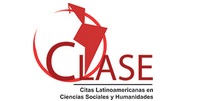Arquitetura, Educação e Inteligência Artificial
Emergências Epistêmicas para a Práxis Pedagógica
DOI:
https://doi.org/10.32870/dse.v0i34.1719Resumo
Este ensaio examina as transformações fundamentais na interseção entre arquitetura, educação e inteligência artificial (IA). Além de representar uma simples atualização tecnológica, a incorporação da IA está reconfigurando as bases do conhecimento arquitetônico e suas práticas pedagógicas. Propomos que estes novos marcos epistêmicos não substituem o saber tradicional, mas abrem espaços onde o humano e o computacional estabelecem relações complementares. O texto desenvolve uma abordagem crítica baseada em um "humanismo digital" que articula estas complementaridades, abordando desafios epistemológicos e éticos com especial atenção ao contexto latino-americano, onde as desigualdades no acesso tecnológico apresentam considerações particulares para a educação arquitetônica.
Downloads
Referências
Barrera-Vergara, M. (2022). Tecnologías digitales y saberes ancestrales: hacia una integración crítica en la educación arquitectónica latinoamericana. Arquitecturas del Sur, 40(2), 125-142.
Benjamin, R. (2019). Race After Technology: Abolitionist Tools for the New Jim Code. Polity Press.
Braidotti, R. (2013). The Posthuman. Polity Press.
Carpo, M. (2017). The Second Digital Turn: Design Beyond Intelligence. USA: MIT Press.
Deutsch, R. (2019). Superusers: Design Technology Specialists and the Future of Practice. Routledge.
Fraser, N. (2000). Rethinking recognition. New Left Review, 3, 107-120.
Freire, P. (1970). Pedagogía del oprimido. Tierra Nueva.
Gutiérrez-Juárez, E. (2022). Frugalidad tecnológica: adaptación crítica de la IA a contextos educativos con recursos limitados. Cuadernos de Arquitectura, 12(2), 45-62.
Haraway, D. (1988). Situated knowledges: The science question in feminism and the privilege of partial perspective. Feminist Studies, 14(3), 575-599.
Hayles, N. (1999). How We Became Posthuman: Virtual Bodies in Cybernetics, Literature, and Informatics. USA: University of Chicago Press.
Hayles, N. (2017). Unthought: The Power of the Cognitive Nonconscious. USA: University of Chicago Press.
Holstein, K.,; B. McLaren; V. Aleven (2018). Student learning benefits of a mixed-reality teacher awareness tool in AI-enhanced classrooms. Artificial Intelligence in Education, 154-168.
Kalay, Y. (2021). Architecture's New Media: Principles, Theories, and Methods of Computer-Aided Design. USA: MIT Press.
Koh, P.; S. Sagawa; H. Marklund; S. Xie; M. Zhang; A. Balsubramani; P. Liang (2022). WILDS: A benchmark of in-the-wild distribution shifts. The Journal of Machine Learning Research, 23(1), 5561-5638.
Lobato-Valdespino, J.; J. Flores (2023). Más allá del estado estable: diseño discursivo como práctica reflexiva asistida por IA. JIDA'23. XI Jornadas sobre Innovación Docente en Arquitectura, 102-114.
Menges, A.; J. Knippers (2015). Fibrous tectonics. Architectural Design, 85(5), 40-47.
Mignolo, W. (2011). The Darker Side of Western Modernity: Global Futures, Decolonial Options. Duke University Press.
Minguito-García, A.; E. Prieto-González (2024). De la imagen al prompt, y viceversa: IA aplicada a la Historia del Arte y la Arquitectura. JIDA'24. XII Jornadas sobre Innovación Docente en Arquitectura, 241-261.
Oxman, R. (2017). Thinking difference: Theories and models of parametric design thinking. Design Studies, 52, 4-39.
Pallasmaa, J. (2012). The Eyes of the Skin: Architecture and the Senses. USA: John Wiley & Sons.
Pérez-Gómez, A. (2016). Attunement: Architectural Meaning after the Crisis of Modern Science. USA: MIT Press.
Picon, A. (2020). The Materiality of Architecture. USA: University of Minnesota Press.
Ramírez-Figueroa, A. (2023). Comunidades distribuidas de conocimiento: estrategias colaborativas para la integración de la IA en la educación arquitectónica latinoamericana. Revista Hábitat Sustentable, 13(1), 24-39.
Ricaurte, P. (2019). Data epistemologies, the coloniality of power, and resistance. Television & New Media, 20(4), 350-365.
Santos, B. de S. (2014). Epistemologies of the South: Justice Against Epistemicide. Routledge.
Terzidis, K. (2018). Algorithmic Architecture: Redefining the Boundaries of Design Knowledge. Taylor & Francis.
Downloads
Publicado
Edição
Seção
Licença
Copyright (c) 2025 Universidad de Guadalajara

Este trabalho está licenciado sob uma licença Creative Commons Attribution-NonCommercial 4.0 International License.
Esta obra está bajo una licencia internacional Creative Commons Atribución-NoComercial 4.0.
Una vez que los manuscritos son aceptados por los evaluadores para ser publicados, los autores deberán de suscribir una carta de cesión de derechos en favor de la Universidad de Guadalajara para la edición, publicación y difusión de su obra. Ya que sea notificada la publicación de su manuscrito, el editor de la revista le enviará un correo electrónico con el formato de la carta de cesión de derechos.















